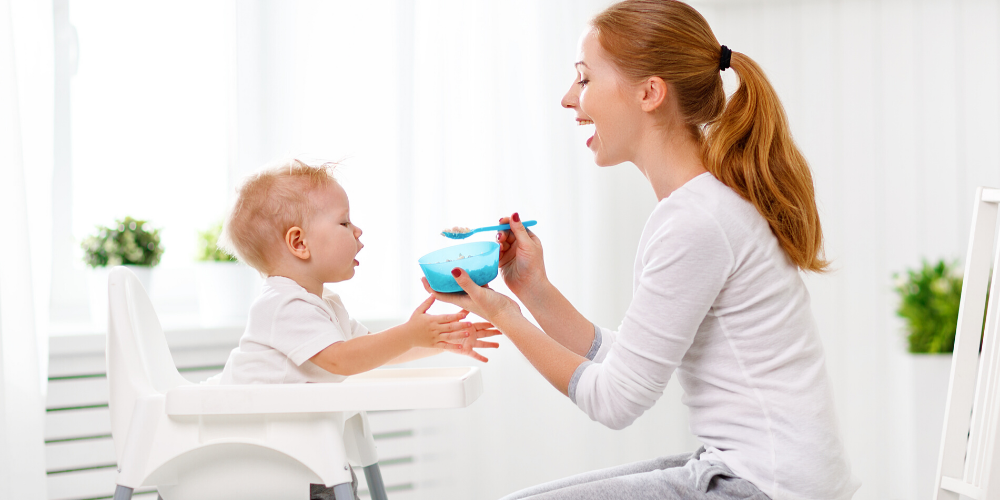Whether it’s our first, second, or even on our way to a fifth baby, we often hear people over and over again tell you to sleep as much as you can when we’re pregnant. We all know that the infant stage is notoriously known as the time where parents succumb to sleepless nights.
However, this doesn’t mean that there’s nothing we can do to help give our babies the best sleep they can have, and hopefully give ourselves a break. After all, there are some studies that show how sleep affects mood, cognitive functioning, and overall development for infants. Parents, especially mothers, on the other hand, develop depressive symptoms when they are sleep deprived.
Need we say more? This goes to show that both parents and babies can benefit from establishing good sleeping habits. What are some of the best baby sleep tips to help make your little angels get more peaceful slumbers? We will be showing you baby sleep advice for each infant stage, starting from newborns up to 3 months, 3-6 months, and 6-12 months.
Break Free From Sleepless Nights: Top 10 Baby Sleep Ideas
Newborn Stage (0-3 Months)
To help understand baby sleep patterns especially in the newborn stage, we need to take note of their common wake and sleep cycles. Usually, newborns sleep for a total of 16-17 hours a day, but they only sleep for 2-4 hours stretches. This is because newborns need to feed at the time they wake up.
Although most newborns sleep peacefully and follow these patterns, some babies nearing the 2-3 month mark may experience sleep regressions due to the ever-changing wake and sleep windows. If you are experiencing this, here are some of the newborn sleep tips you can follow:
Swaddle your baby
When our babies are in the womb, they are used to the cramped space that surrounds them tightly. As newborns get startled with sounds or movements during sleep, their Moro reflex is triggered, causing a disruption of their sleep window. Our babies may end up waking up prematurely–resulting to a cranky, overtired little one!
One of the best newborn sleep tips we can follow is baby swaddling. There are breathable muslin cloths available to help your infant get a comfortable swaddle, or you can also purchase those ready-to-wear swaddling cloths as well.
Have a usual sleeping area
Many parents make the mistake of making their baby sleep wherever they’re at. However, as much as we want to watch the last few minutes of our favorite TV series when our babies are already drowsy, it is best to bring them to their usual sleeping area.
Having a specific area for your baby’s sleep helps establish a positive sleep association. This means that your baby is more likely to have stronger cues for napping and sleeping when they are repeatedly exposed to the same snooze-zone. Some of the ways to help your baby sleep better in their designated area are the following:
- Lights should be dim enough to promote restful sleep.
- The temperature is cool enough even if the baby is swaddled.
- Avoid making their sleep zone as a play area, to avoid confusion.
Try white noise
The newborn stage is all about having smooth transitions from the womb to the world as well. Aside from swaddling, one of the top baby sleep tips that parents can follow is having white noise during a baby’s sleep time. White noise helps recreate the sounds heard from the womb, which helps dull out sudden noises that they may hear during the night.
You can purchase a white noise machine, or alternatively use phone apps that have various white noise sounds.
Stage Two (3-6 Months)
At this point, babies have an increasing awareness of the world. They begin to have clearer vision, and they are more interactive towards their caregivers. This stage is also known for another dreaded sleep regression which happens at around 4 months. During a sleep regression, they may refuse to sleep at night and wake up every hour–exhausting, we know! As you mentally prepare yourself for what’s to come, here are other baby sleep tips that can come in handy:
Avoid making your baby overtired
We have heard of the old wives’ advice that prolonging a baby’s wake window can make them sleep better through the night. Nothing could ever be more false! In fact, an overtired or overstimulated baby is more likely to have frequent night awakenings because their rhythms are disrupted.
To avoid this problem, we need to take note of cues that your baby is starting to get sleepy. Some of the usual cues that a baby at this stage is already tired are:
- Rubbing their eyes
- Scratching their ears
- Being more whiny than usual
When you pick up these cues from your little one, it is time to put them to sleep.
Remove negative sleep associations
During the 4 month sleep regression, babies would depend on sleep associations that we have established, whether positive or negative. One helpful baby sleep advice is to remove all possible negative sleep associations that cause your little one to wake up in the middle of the night.
Basically, negative sleep associations are those which require you to do something for the baby to help them go back to sleep. They may include rocking to sleep, nursing or bottle feeding, or putting back the pacifier.
For some, removing sleep associations are most effective when done cold turkey, but for others, a gradual approach is more doable. An example would be removing the associations one by one, or lessening the time you give it to your baby just before they go to sleep.
Establish a sleep routine
Aside from eliminating sleep associations, one of the best baby sleep tips is to establish a night-time routine. This helps the baby ‘wind down’ and have a calming energy just before bed. Creating a routine helps your little one anticipate that it’s time to go to bed, making falling asleep easier and sleep times longer.
Some things you can do as a part of the night time routine are:
- Taking a warm bath
- Putting on pajamas
- Reading a bedtime book
Stage Three (6-12 Months)
It is easy to breathe a sigh of relief when we reach this stage. Most babies can sleep for 6-12 hour stretches at this point, which means more restful slumber for everyone! However, you can expect longer wake times and changing nap patterns from your little one, beginning from 6 months.
Some babies drop the third nap at around 6-8 months, and others can even stay awake the whole day even with just a single nap especially around the 10-12 month mark.
Nevertheless, our babies’ changing sleep patterns can affect their mood and development during wake cycles, so it is important to maintain good habits even at this stage.
Feed enough solids and milk during the day
Keeping our babies sleeping through the night also means not depriving them of food or milk during the day. It is easy to lose track of how much our babies eat if we have busy schedules. Typically, 6-12 month babies begin to eat at least 2-3 meals a day, starting with 1-2 tablespoons each, but gradually moving to 3 full meals and 2 snacks by 12 months.
Babies who are hungry will smack their lips or become extra cranky. Make sure to include enough milk during the day as well to prevent middle of the night feedings.
Develop a day-to-night routine
Our baby’s increasing awareness and interaction with the world means that they are expecting some form of consistent schedule through the day. Having regular feeding, playing, naptime and sleep time patterns is one way to create this routine. Believe it or not, the routines you establish through the day will help them have more stable circadian rhythms and associate rest and sleep during the night.
Consider sleep training
Although a hotly debated topic, sleep training is another common baby sleep advice that some parents implement.
There are various sleep training methods, and the best ones are those which work for you and your family. Some prefer the cry-it-out method, and others want a ‘gentler’, no-cry approach. At 6 months, most paediatricians give a go signal to parents on sleep training, so this is a perfect time to try some methods which you think may be effective for your baby.
Have an earlier bedtime
Babies 6-12 months may stay awake for about 3-4 hours, which means that they may end up having 1-3 naps, resulting in a later bedtime. If you notice that your baby is sleeping much later than 9:00 pm and have signs of being overtired, consider making your bedtime at least 30 minutes earlier. Doing this can help your baby fall asleep much easier and have less middle of the night awakenings.
These top 10 baby sleep ideas are some of the tried-and-true ways that many parents swear by. Experiment on some of these tips per recommended stage, and see which ones work for you the best.



